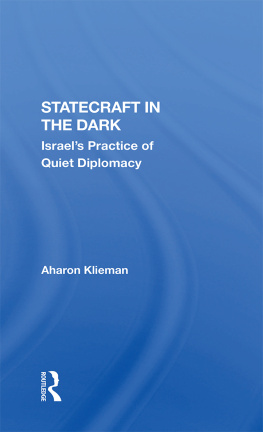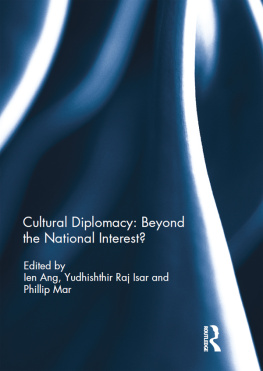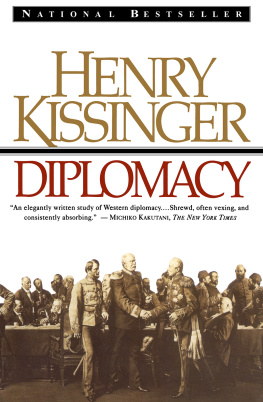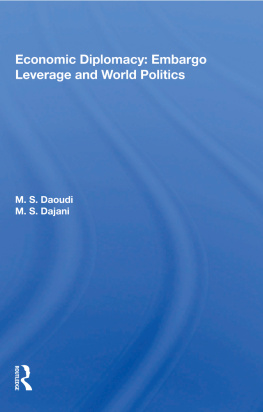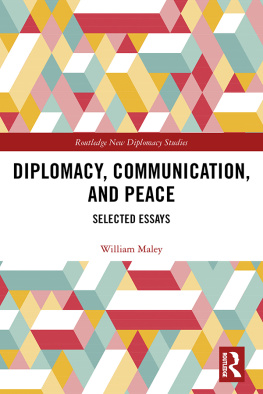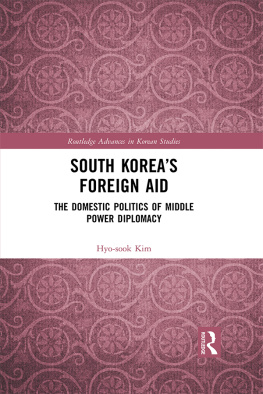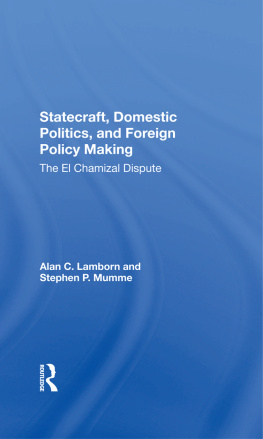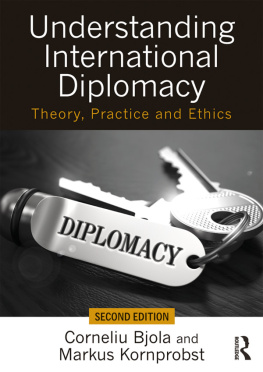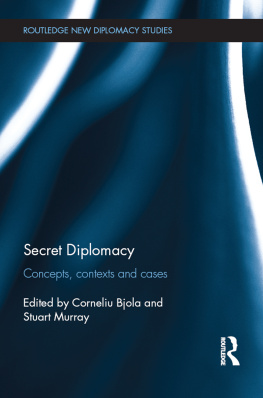First published 1988 by Westview Press
Published 2019 by Routledge
52 Vanderbilt Avenue, New York, NY 10017
2 Park Square, Milton Park, Abingdon, Oxon OX14 4RN
Routledge is an imprint of the Taylor & Francis Group, an informa business
Copyright 1988 Tel Aviv University Jaffee Center for Strategic Studies
All rights reserved. No part of this book may be reprinted or reproduced or utilised in any form or by any electronic, mechanical, or other means, now known or hereafter invented, including photocopying and recording, or in any information storage or retrieval system, without permission in writing from the publishers.
Notice:
Product or corporate names may be trademarks or registered trademarks, and are used only for identification and explanation without intent to infringe.
ISBN 13: 978-0-367-28875-4 (hbk)
The Jaffee Center for Strategic Studies (JCSS)
The Center for Strategic Studies was established at Tel-Aviv University at the end of 1977. In 1983 it was named the Jaffee Center for Strategic Studies in honor of Mr. and Mrs. Mel Jaffee. The objective of the Center is to contribute to the expansion of knowledge on strategic subjects and to promote public understanding of and pluralistic thought on matters of national and international security.
The Center relates to the concept of strategy in its broadest meaning, namely, the complex of processes involved in the identification, mobilization and application of resources in peace and war, in order to solidify and strengthen national and international security.
International Board of Trustees
Chairman: Melvin Jaffee
Immediate Past Chairman: Joseph H. Strelitz (deceased)
Robert H. Arnow, Arnold Y, Aronoff, Newton D. Becker, Jack Berlin, Henry Borenstein, Edgar M. Bronfman, Simon Chilewich, Stewart M. Colton, Lester Crown, Joseph E. Eichenbaum, Danielle and Shimon Erem, Allan Fainbarg, Dr. Gerald Falwell, Jacob Feldman, Arnold D. Feuerstein, David Furman, Guilford Glazer, Eugene M. Grant, Vernon Green, Irving B. Harris, Robert M. Hecht, Betty and Sol Jaffee, Philip M. Klutznick, Max H. Kranzberg, Raymond Kulek, Max L. Kunianski, Mark Lambert, Rose and Norman Lederer, Fred W, Lessing, Morris L. Levinson, Edward Levy, Peter A. Magowan, Hermann Merkin, Stephen Meadow, Joseph Meyerhoff, Monte Monaster, Max Perlman, Milton J. Petrie, Gary P. Ratner, Raphael Recanati, Meshulam Riklis, Morris Rodman, Elihu Rose, Malcolm M. Rosenberg, Irving Schneider, Marvin Simon, Ruth Sinaiko, Walter P. Stern, Dr. Robert J. Stoller, Leonard R. Strelitz, James Warren, David Warsaw, Jacob D. Weiler, Marvin A. Weiss, Emanuel A. Winston, Bart Wolstein, Paul Yanowicz, Mortimer B. Zuckerman.
Covert agreements and operations are a fact of world affairs. Secrecy in diplomacy remains as much a challenge for international politics as it is for national and foreign policy. This study undertakes to address aspects of clandestinity at both the domestic and external levels. Secret diplomacy's mixed fortunes in this century are first surveyed, along with many of the criticisms leveled against such practices, following which other positive features of back-channel or quiet diplomacy are suggested.
In order to confirm the utility of statecraft in the dark, one specific instance involving a dramatic strategic initiative by a superpower, the United States, is recalled in detail. The secret opening to China in 1971 is of undisputed historical importance. Not only is it a watershed for modern diplomacy, bringing about a major power realignment and easing rigid bipolarity; it also provides an exceptional insight into the way operating in the back channel actually takes place.
The China gambit is rivaled perhaps only by the secret prelude to the 1977 visit by Egyptian President Sadat to Jerusalemwhich proved instrumental in conflict termination and Middle East peacemaking. Participation by Israel in that particular exercise in diplomatic secrecy is not exceptional. Rather, it is argued that Israel offers the premier example of a small state practitioner of quiet diplomacy. For circumstances and preconditions of absolute confidentiality imposed on it by other actors have forced it to learn to pursue vital national interests discreetly-through the back door.
Consequently, any balanced evaluation of Israeli foreign policy-veils of secrecy notwithstandingmust take into account those silent efforts and initiatives aimed not only at preventing future setbacks, hostile coalitions and military or diplomatic threats, but at furthering a number of national goals. As analyzed in this monograph, these include: military procurement and the provision of foreign military assistance, intelligence operations and support for allies; the import of strategic raw materials; commercial trade and arms sales; prisoner-of-war exchanges and arrangements for hostage releases; and the fostering of immigration and protection of vulnerable Jewish communities in the Diaspora. As a result of concrete achievements in these vital areas, Israelis appear to have less difficulty than, for example, their American counterparts in accepting the necessity for secretive yet imaginative foreign contacts.
Reserved for separate analysis are the political contacts cultivated by back-channel diplomacy between Israel and a number of Middle Eastern peripheral countries, non-regional states and, surprisingly, even Arab governments and leaders formally still at war with Israel. Most illustrative of the benefits as well as shortcomings found in quiet diplomacy is the meaningful though limited tacit relationship cultivated by Israel over the course of many years with the Hashemite Kingdom of Jordan.
Based upon these experiences, some preliminary conclusions are drawn about diplomatic back channels in generaltheir premises, opportunities and risksand Israeli emphases in particular. These are offered as a first step toward the fuller understanding of the role of secrecy in today's dangerous world not only for democratic foreign policy, but for evolving patterns of politics among nations. Hence no pretense is made at exhausting the subject. On the contrary, our interest is to provide the reader with an initial insight into this important facet of world politicswhich, as the Israeli case illustrates, takes place behind the scenes, beneath the surface, and in between the lines.

